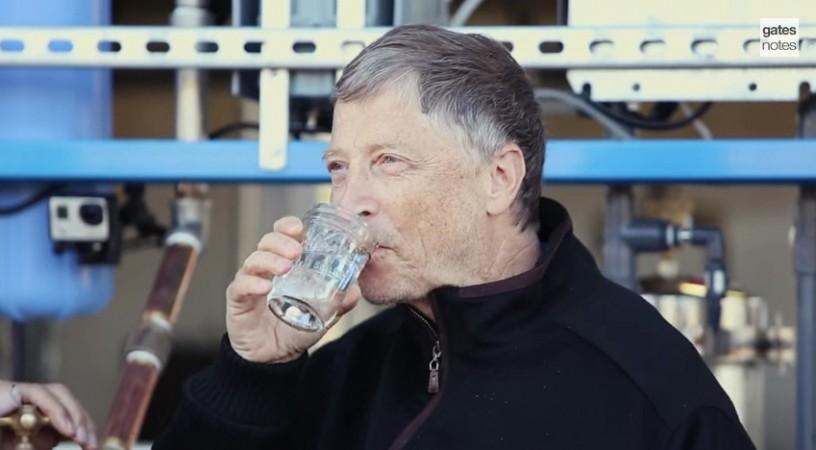
Bill Gates, the billionaire founder of Microsoft, is famous for his involvement in social projects and philanthropic ventures and his latest one seems to be a little stinky.
Gates was in Seattle recently where he checked out a new machine that turns human feces and sewage into clean drinking water and electricity.
The Janicki Omniprocessor, a machine developed by engineers at the energy firm Janicki Bioenergy, has been built to provide basic amenities like pure drinking water and power to developing countries while also helping to build a better sanitation system.
The machine is equipped to process waste from 100,000 people and turn it into 86,000 liters of drinkable water and a net 250 kilowatts of electricity, every day.
Gates posted a video of the working of the omniprocessor in his blog. The engineers of the machine also explain the working of the plant in the video.
Bill Gates is himself seen drinking a glass of water after the sewage is treated in the plant at the end of the video.
"The water tasted as good as any I've had out of a bottle. And having studied the engineering behind it, I would happily drink it every day. It's that safe," Gates wrote in his blog post.
"The processor wouldn't just keep human waste out of the drinking water; it would turn waste into a commodity with real value in the marketplace. It's the ultimate example of that old expression: one man's trash is another man's treasure," he explained.
Gates said that this was an ideal way of treating the sanitation problems in developing countries.
"...diseases caused by poor sanitation kill some 700,000 children every year, and they prevent many more from fully developing mentally and physically. If we can develop safe, affordable ways to get rid of human waste, we can prevent many of those deaths and help more children grow up healthy," Gates added.
Experts say that the plant could start off helping in areas that already have some access to better sanitation than those that have none.
"If the technology can be rolled out at a scale that makes it viable for smaller investors or entrepreneurs, then this could be a catalyst for changing the sanitation landscape in urban areas in the developing world," Ada Oko-Williams, sanitation technical support manager at WaterAid, a non-profit organization, told BBC.
Gates, who is funding and promoting the machine, hopes to begin sending out the treatment plants to India and other countries after it has made its debut in Senegal later in 2015.
"If we get it right, it will be a good example of how philanthropy can provide seed money that draws bright people to work on big problems, eventually creating a self-supporting industry," Gates was quoted by the BBC.
"Our goal is to make the processors cheap enough that entrepreneurs in low- and middle-income countries will want to invest in them and then start profitable waste-treatment businesses."











